ESSENTIAL RECOMMENDATIONS
Will the Implementation of Global Minimum Tax Redirect Foreign Direct Investment into Vietnam?
To combat base erosion and profit shifting, on July 9, 2021, finance ministers and central bank governors of the G20 agreed on the principles of the Two-Pillar Solution to address tax challenges arising from the digitalization of the economy (referred to as the Global Minimum Tax Agreement). The second pillar establishes a global effective corporate income tax rate (ETR) of 15% for multinational companies, aimed at preventing these companies from shifting profits to low-tax jurisdictions to avoid income taxes…
Implementation of Global Minimum Tax from January 1, 2024
To combat base erosion and profit shifting, on July 9, 2021, finance ministers and central bank governors of the G20 agreed on the principles of the Two-Pillar Solution to address tax challenges arising from the digitalization of the economy (referred to as the Global Minimum Tax Agreement). The second pillar establishes a global effective corporate income tax rate (ETR) of 15% for multinational companies, aimed at preventing these companies from shifting profits to low-tax jurisdictions to avoid income taxes. On November 29, 2023, the National Assembly of Vietnam officially passed a resolution to implement an additional corporate income tax in line with the global minimum tax regulations. The tax rate of 15% will apply to multinational companies with consolidated revenue of 750 million euros (approximately 800 million USD) or more over a two-year period in the four most recent years. The resolution will take effect from January 1, 2024, applying to the 2024 fiscal year. According to preliminary calculations by the General Department of Taxation, over 120 foreign corporations (with more than 1,000 companies) investing in Vietnam will be affected by this regulation.
Vietnam's Dilemma
Experts assess that the minimum tax rate of 15% will impact Vietnam, as the country currently offers various tax incentives to foreign direct investment (FDI), leading to effective tax payments below 15%. This new tax rate raises concerns about Vietnam's attractiveness to FDI companies, as tax exemptions and reductions have been key factors in attracting foreign capital. For many years, tax incentives have been crucial in attracting FDI in Vietnam. The standard corporate income tax rate has been reduced from 32% to 28%, then 25%, 22%, and currently stands at 20%, alongside many policies offering corporate income tax incentives. For eligible companies, both in terms of tax rate and duration, the effective tax rate is below 15%.
Under the GMT agreement, FDI companies that fall under its scope will have to pay additional taxes to the home country of their ultimate parent company, directly affecting their capital and business plans, as well as the attractiveness of Vietnam's investment environment. As a result, if investors become less interested in Vietnam due to the imposition of additional domestic taxes, they will begin to focus on other advantages that different countries offer: infrastructure, labor costs, government support, legal protections, streamlined administrative procedures, and new incentive policies. These are areas where Vietnam has weaknesses in attracting FDI, despite significant improvements in recent years.
However, the degree of impact from the GMT in Vietnam will depend on the investment goals of the companies, the level of incentives through tax rate reductions and deductions, as well as their global consolidated revenue. The GMT agreement is expected to have both positive and negative effects on Vietnam.
Adjusting Policies to Adapt to the New Context
- To effectively implement the GMT, it is necessary to develop and refine related regulations.
- To offset some of the impacts of the GMT, Vietnam needs appropriate policies and measures for the two groups of investors affected.
- A prompt review, update, and amendment of legal regulations related to FDI attraction is essential.
- Proactively enhancing the effectiveness of international economic integration.
- Urgently prioritizing the improvement of tax management capacity and enhancing the investment-business environment.
- Establishing a roadmap for the phased implementation of the GMT in Vietnam.
>>> VNU UNIVERSITY OF ECONOMICS AND BUSINESS
Assoc. Prof. Dr. Nguyễn Anh Thu
Dr. Nguyễn Thị Vũ Hà
Dr. Nguyễn Thị Thanh Mai
OTHERS
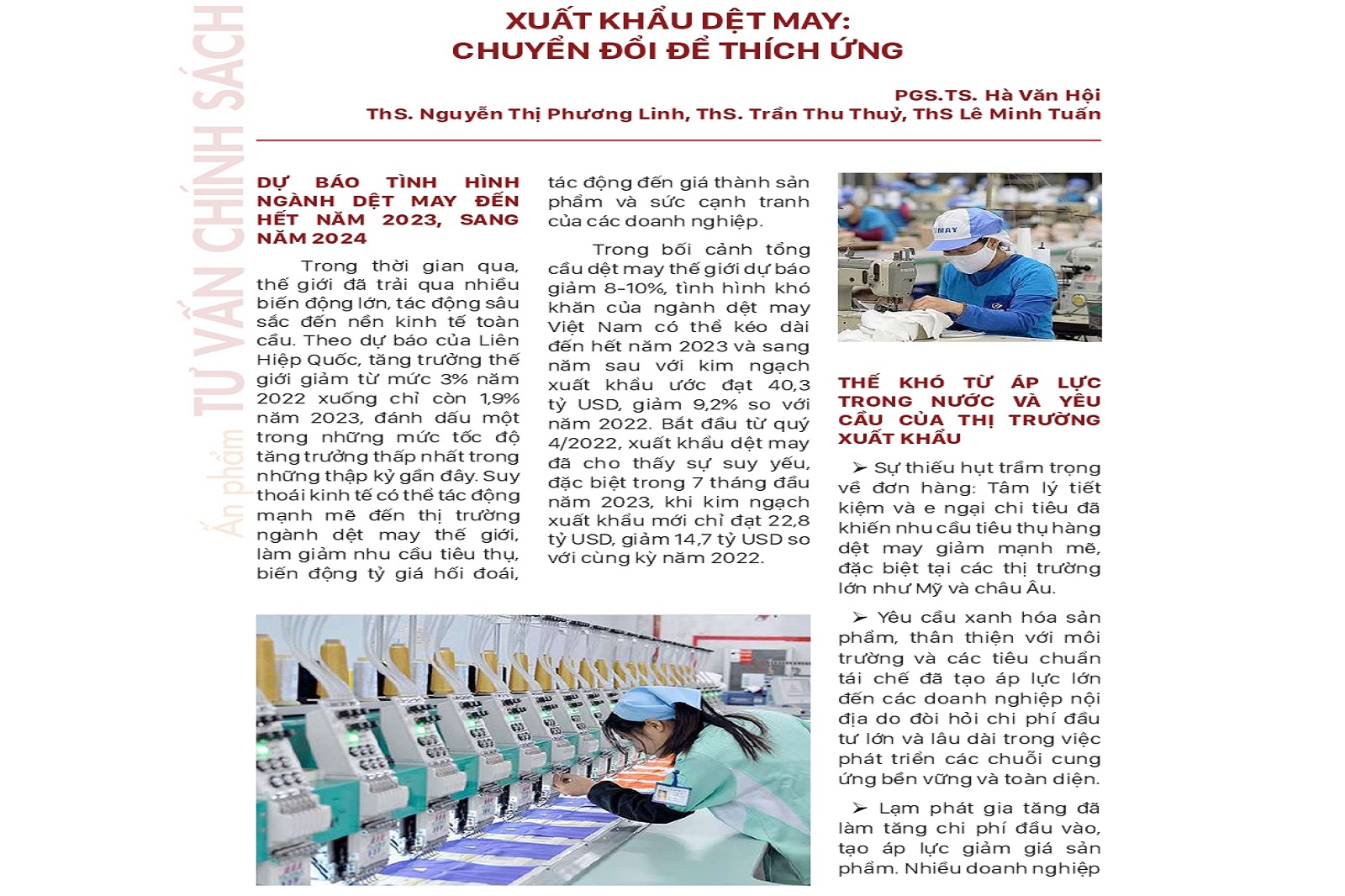
Textile and Garment Exports: Transforming to Adapt
Recently, the world has experienced significant upheavals that have profoundly impacted the global economy. According to UN forecasts, global growth is ...
More details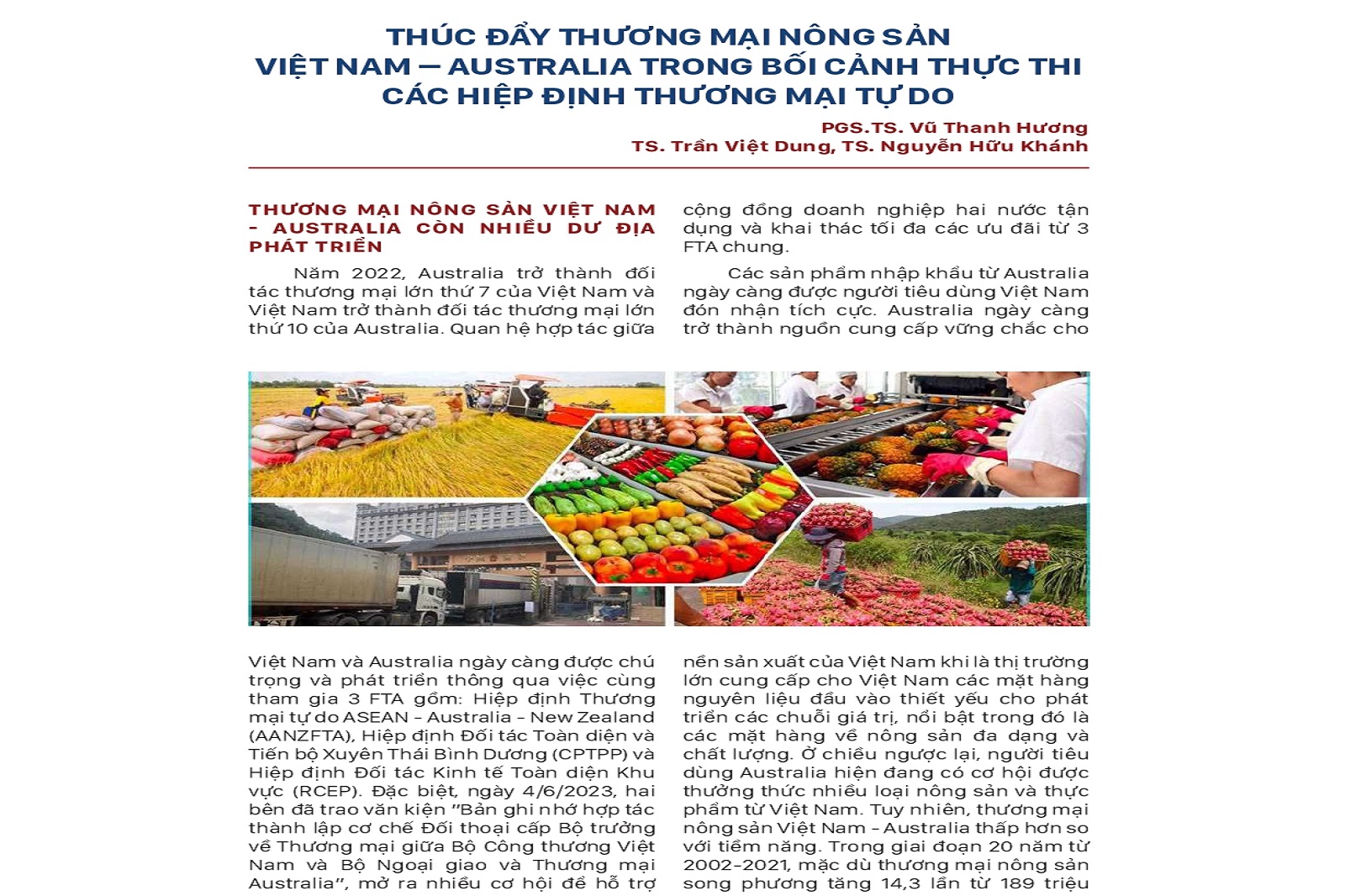
Promoting Vietnam-Australia Agricultural Trade in the Context of Implementing Free Trade Agreements
Australian imports are increasingly well-received by Vietnamese consumers. Australia is becoming a reliable supplier for Vietnam's production needs, providing ...
More details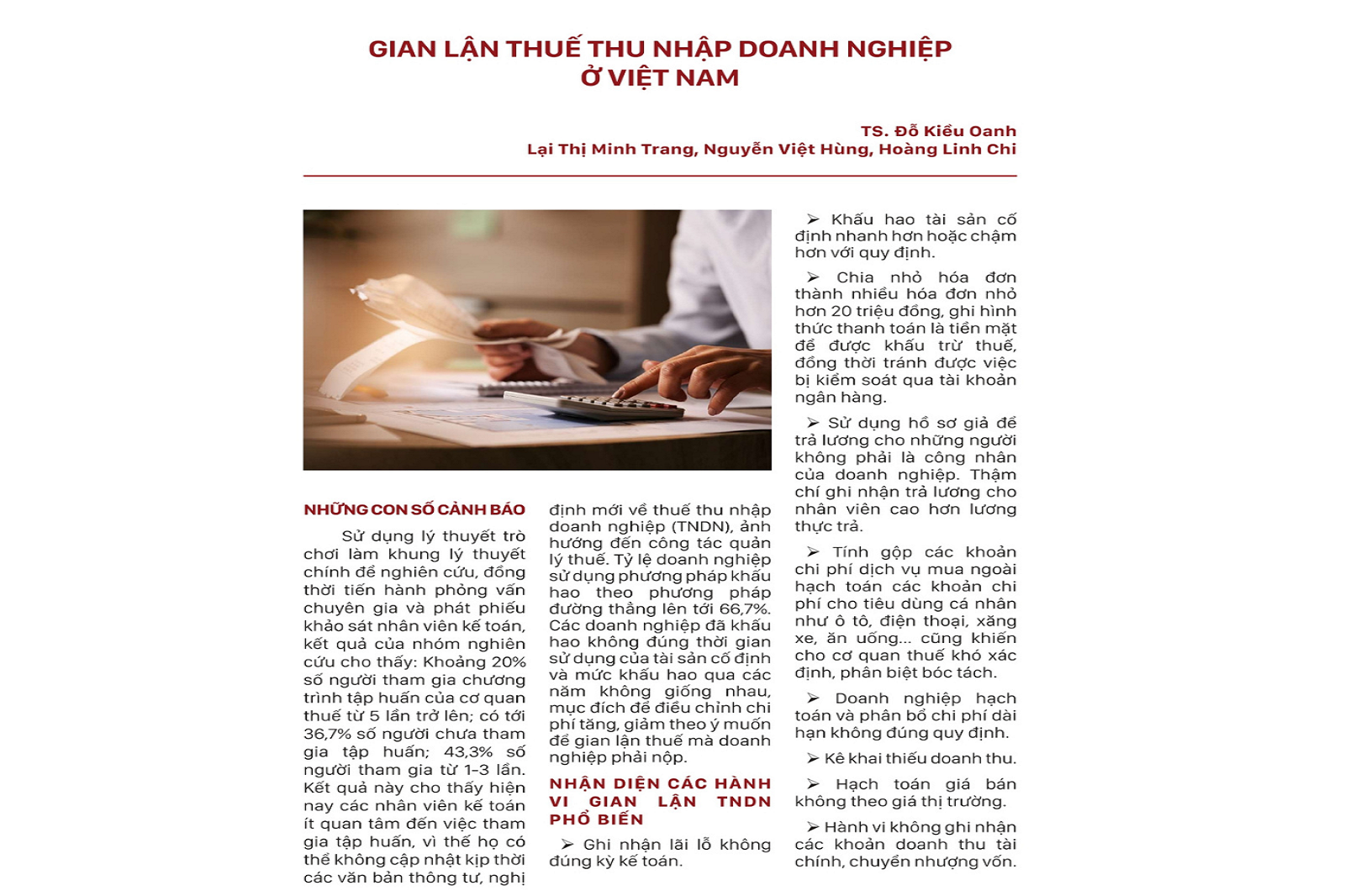
Corporate Income Tax Fraud in Vietnam
Using game theory as the main theoretical framework for the study, along with expert interviews and surveys of accountants, the research team found that ...
More details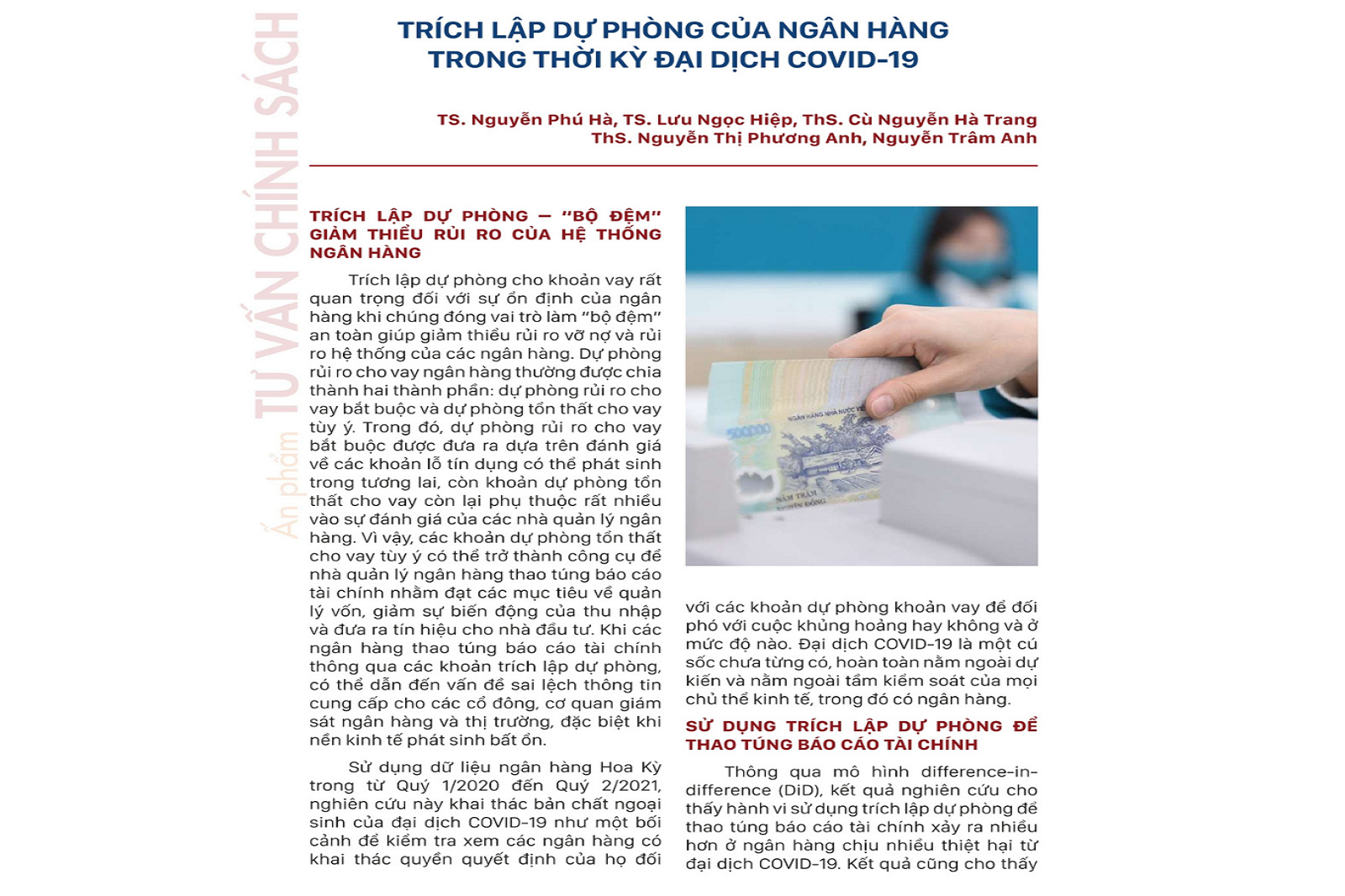
Provisioning by Banks During the COVID-19 Pandemic
Provisions for loans are crucial for the stability of banks as they serve as a safety "buffer" to mitigate the risks of defaults and systemic risks in ...
More details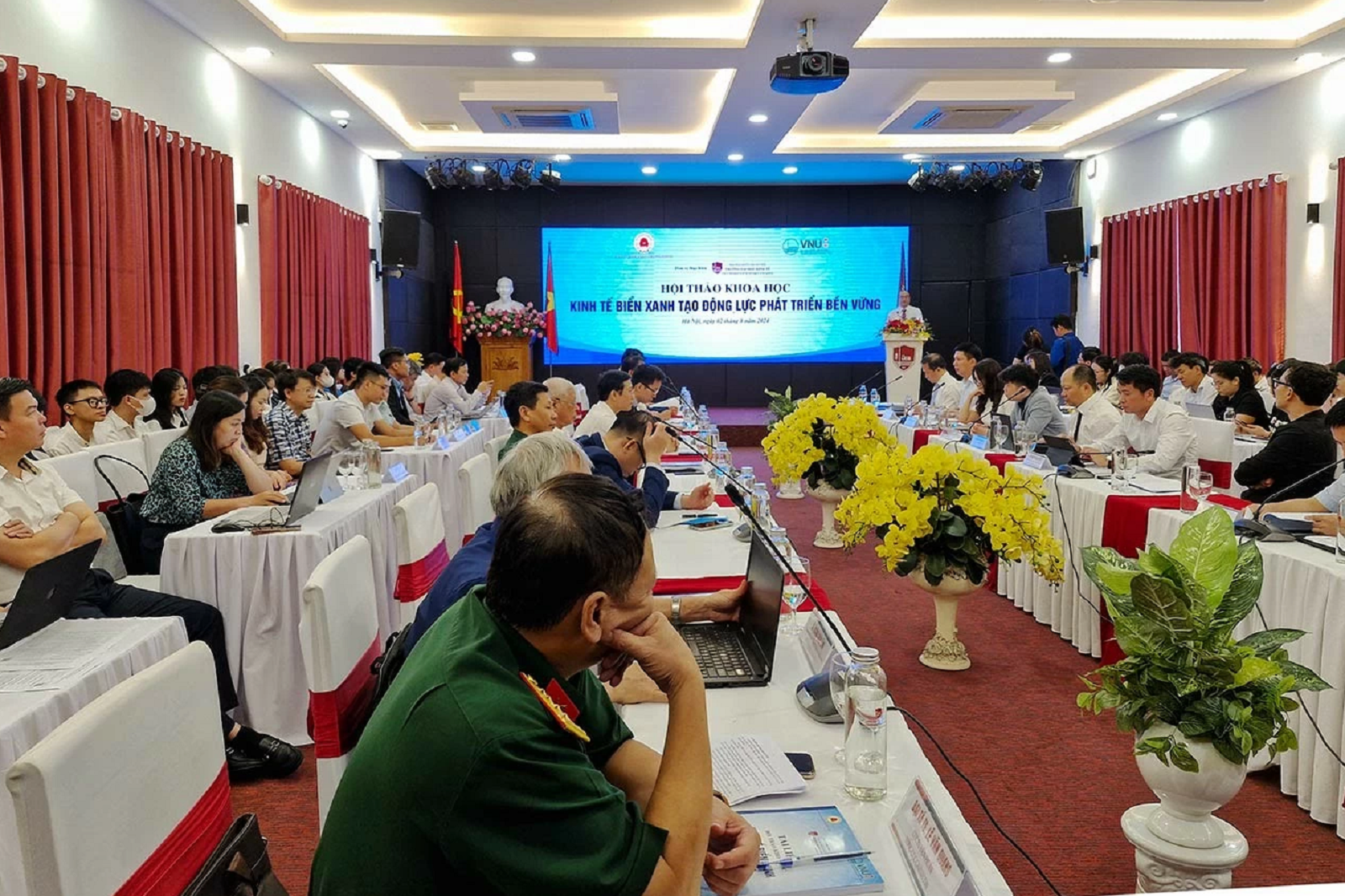
Blue Economy as a Driver for Sustainable Development
The green transition and the development of a blue economy are not only global trends but also consistent policies of the Party and the State of Vietnam, ...
More details
ASEAN Economic Cooperation Forum and Emerging Economies with the Russian Federation in the New Context: Issues and Prospects
Today, international economic cooperation between countries faces significant challenges. The trade volume between Russia and Vietnam, as well as between ...
More details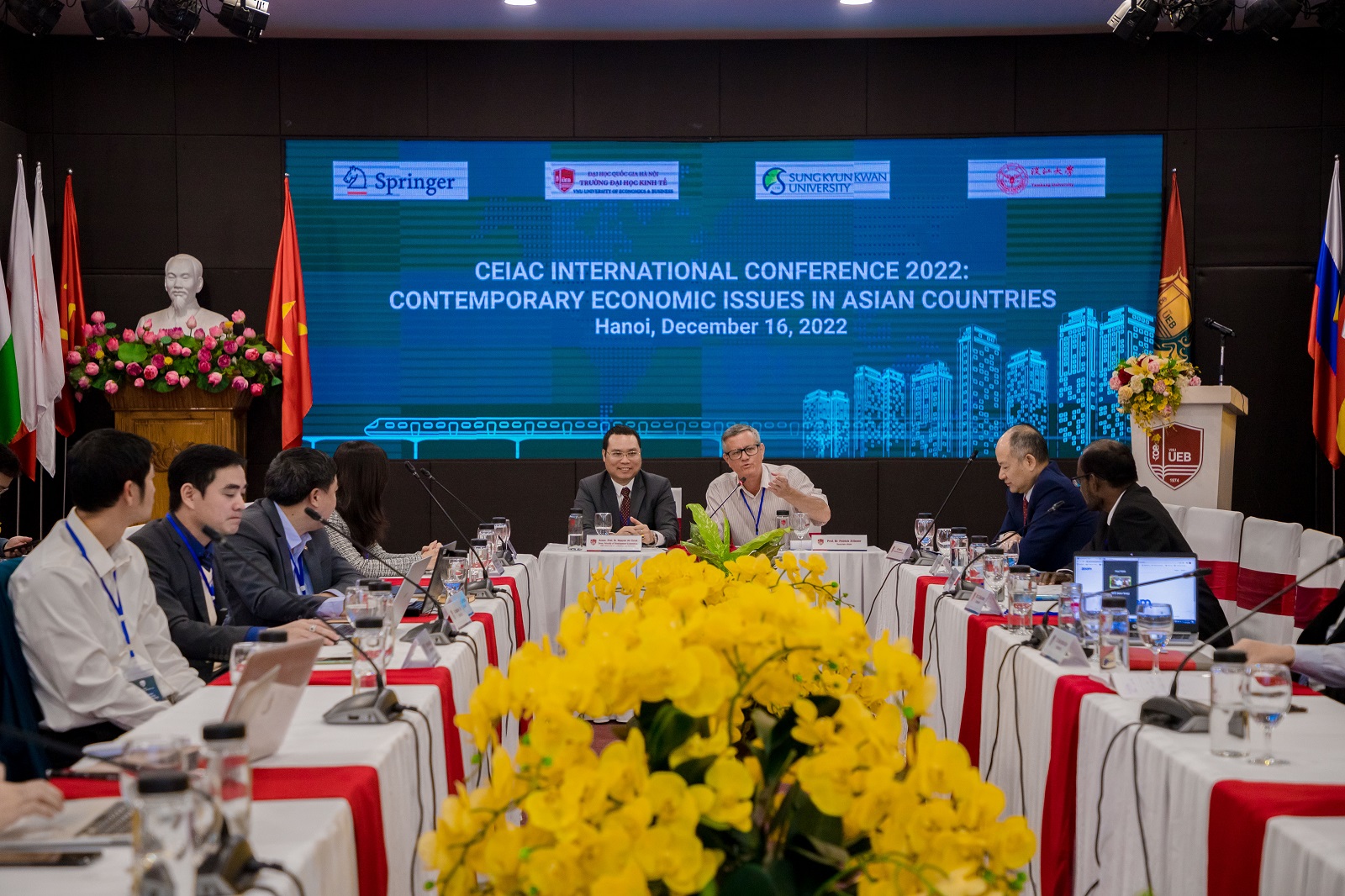
Contemporary economic issues in Asian countries
On December 16, 2022, UEB organized the international workshop “Contemporary Economic Issues in Asian Countries” (CEIAC 2022) to enhance scholarly and ...
More details
Regional economic integration and its impact on businesses
Research revealed how free trade and competition enhance the efficiency of businesses and economies. Import competition drives firms to increase productivity, ...
More details
Completing land pricing policies in Vietnam
The Land Law 2013, Decree No. 44/2014/NĐ-CP on land prices, and Circular No. 36/2014/TT-BTNMT detailing land valuation methods, construction, adjustment ...
More details